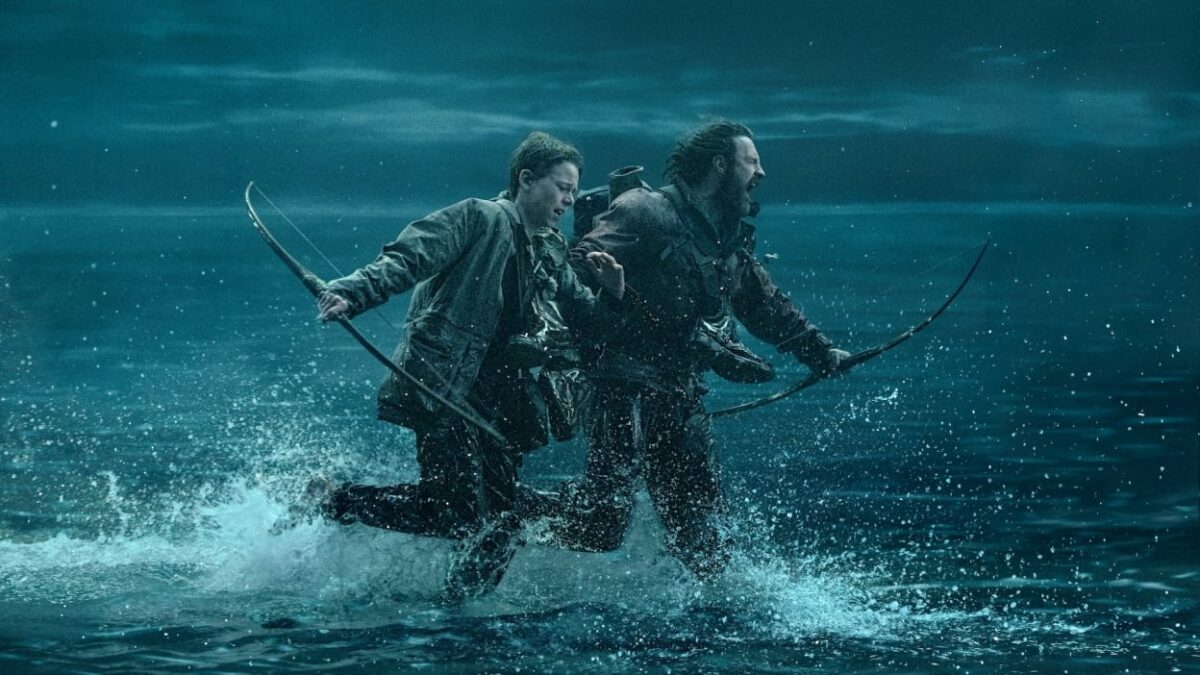I’ve seen 28 Days Later and 28 Weeks Later, and I liked them both fine, but never considered myself a fan of the franchise. I thought the second one was more or less forgettable, and the thing I found most memorable about the first was seeing young men in the audience of the theater absolutely losing their shit at having to see a penis on screen.
So I wasn’t sure I was even going to see 28 Years Later, and definitely wasn’t expecting to enjoy it that much. It very much benefitted from seeing it in a theater, more for the sound than anything else. I saw it at an AMC with rumbling seats (not to keep inadvertently advertising for AMC, but their version is called “Prime”) and I highly recommend seeing it in that format if it’s possible in your area.
The thing I found most remarkable about the movie is the editing and sound design. I haven’t seen a Danny Boyle movie since Slumdog Millionaire, and I’d forgotten how many stylistic flourishes he uses. There are so many bizarre choices, especially in the first half, that seem like they shouldn’t work at all, but it’s brilliant. It gives everything an energy that I never would’ve expected from a dire post-apocalyptic story.
There are a ton of disorienting super-quick cuts, which I’d expected, but I’d expected them to be during the rage virus attacks. Instead, they’re spread throughout the relatively action-light opening, in which a boy accompanies his father to “the mainland” (not the continent, but from their island home onto Britain) for his coming-of-age first kill of one of the infected.
What’s remarkable is that they’re almost all non-diegetic. Occasionally there’s a quick cut to show something happening from a different perspective, or suggesting an oncoming threat. But they’re also interspersed with shots from older movies showing English longbowmen prepping their bows or launching a volley of arrows into the air. Along with cuts to a tattered English flag, it sets up the idea of these survivors being part of a centuries-old history. Not exactly patriotic, but more like respect for England itself being able to survive an apocaylpse.
That’s furthered by later scenes of the characters seeking shelter in ancient ruins, surrounded by statues that seem to have been standing guard against dangers for thousands of years before zombies I mean infected.
There are lots of production photos out there showing multi-camera rigs circling one of the infected (the entire movie was shot on iPhones, apparently), generating the bullet-time-like shots of an infected being pegged with an arrow, of which there are many. But they somehow never seems gratuitous, or more accurately, they’re so completely surrounded by gratuitous flourishes that they just feel like the language of the film.
There are also more subtle uses of the quick cuts, flashing to a character’s distorted memory, a quick shot of an English neighborhood and then the same neighborhood in ruin, so that you’re never quite sure what’s “real” and what’s not. Combined with scenes of the English countryside, or characters running from danger against a beautiful night sky, it almost makes it seem like a modern fantasy. And also as if there’s an inherent beauty to this place that will survive long after all the humans have died off.
The sound design is disorienting as well. Music choices seem completely inappropriate for a scene, but somehow end up working perfectly. And there are powerfully loud BOOMS and buzzes that punctuate tense scenes, driven home especially hard by those aforementioned rumbling seats.
The recitation of the poem “Boots,” which forms the tense and surreal basis of the trailers, is also in the movie, but it’s also non-diegetic. Just adding to that mood of suspense and relentlessly driving forward.
It’s all surreal and exciting, and even though I had little interest in the story and don’t care for post-apocalyptic stories in general, I kept being struck by how beautiful and artful it all was.
Most surprising of all, at least to me, is that there are multiple moments of genuine comedy. Even if I’d expected the energy driving this movie, I would never have expected it to be anything other than humorless. But by that point, you’re so used to all of the wild tonal shifts and stylistic shifts, and moments of quiet followed by sudden horrific brutality, that it feels like the jokes are warranted.
I can’t say I’m interested in ever watching 28 Years Later again, but it’s so stylistically weird and confident that it feels like virtuosic filmmaking. And without spoiling anything, I thought the ending was so unexpected and so delightfully bizarre that I’m genuinely looking forward to seeing whatever comes next.
